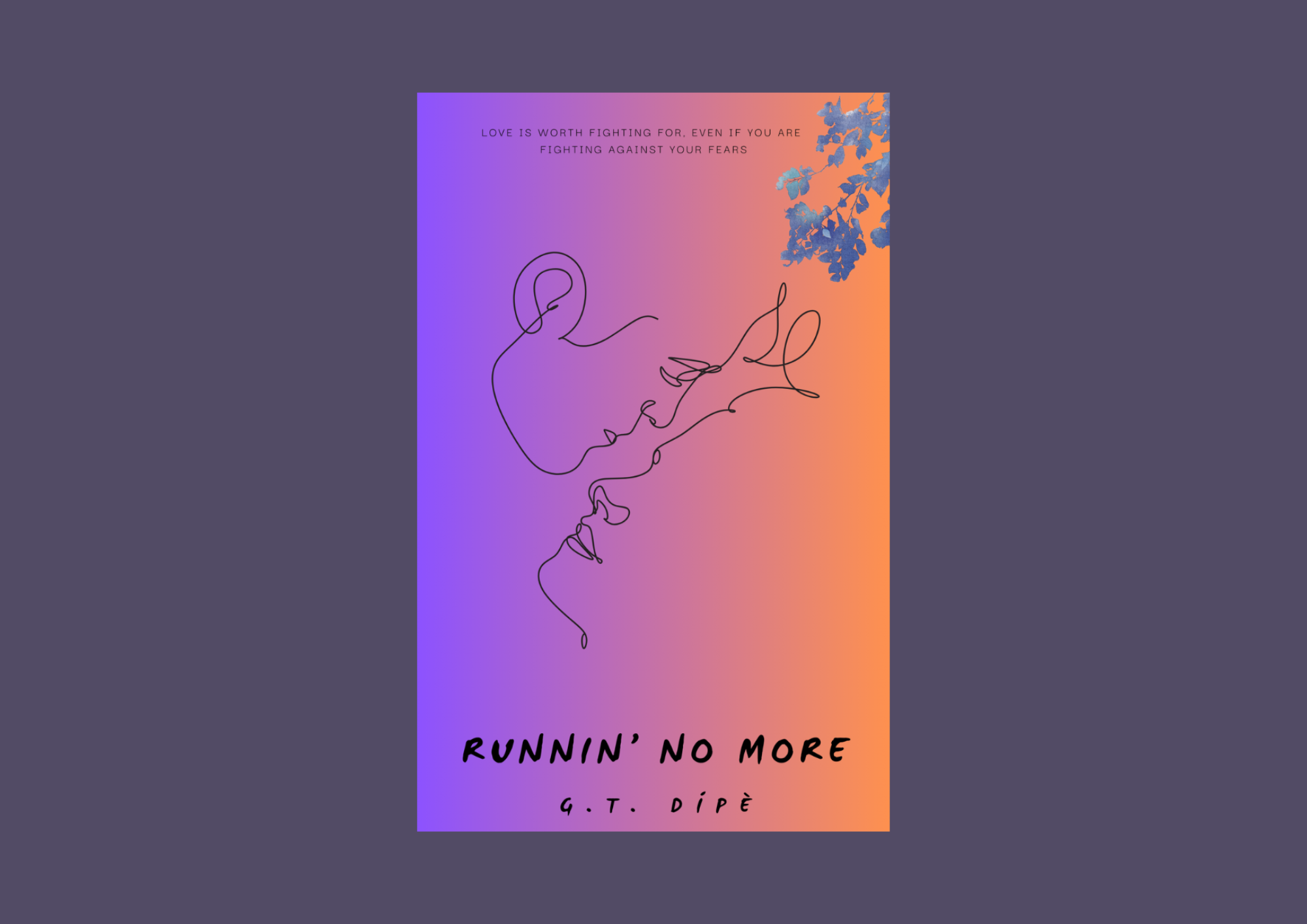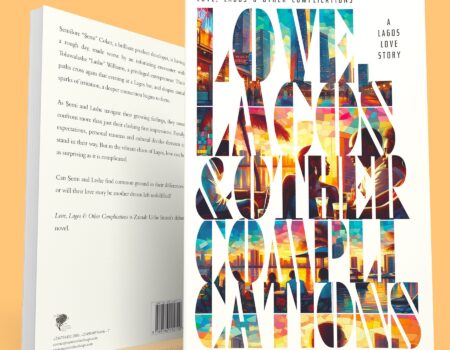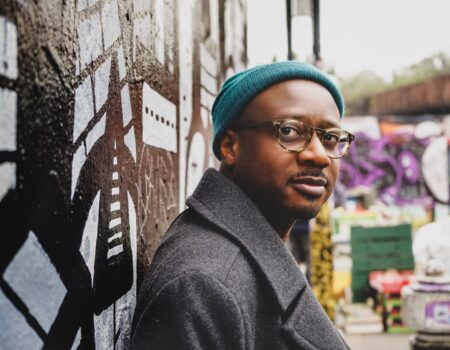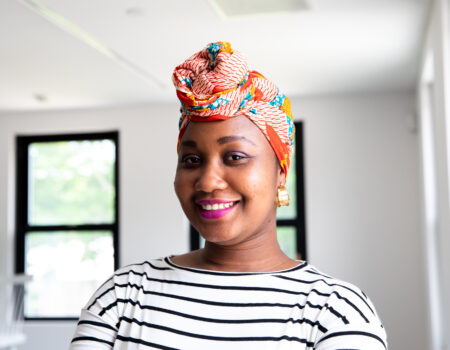Love is worth fighting for, even if you are fighting against your fears.
A meeting that seems to be one in a million… a collision by astronomical chance. An accident like no other. Imagine this – a melting pot of love, drama, romance, revenge, and trauma. Now, imagine it all comes together to form a long series of events – ups and downs – a chaotic rollercoaster of mixed emotions, building up to a climax, leaving you breathless. This is what Runnin’ No More by G.T. Dipe is. If you are a fan of ooey-gooey romance – you know, the type that is soft and warm – then, this book is one you would love to read. Cozy, soft, emotional, heavy, funny… these are words to describe the feelings embedded within the books. Happiness, fear, love, guilt, fulfillment… these are some words to describe the emotions coursing through the characters.
It is a touching, warm, and romantic story, that follows two men. Teni and Stefan. Teni is a Nigerian-British man, who lives in the UK, and Stefan is Swedish. They are both running so fast, away from the traumas of their past. They keep running, and running, until they end up colliding with each other at an airport, their worlds, intertwining. I like how organic the characters are, and how real their experiences feel. While Teni and Stefan’s love story isn’t all rainbows and sunshine – but it for the most part, is mostly warm and pure. I like how the writer makes it very clear that they are very much in love with each other but still points out just how flawed people can be, and how to resolve altercations in relationships – highlighting how patience, trust, and love are important tools required in making a long-lasting relationship. I like how the book talks about the vulnerability of love – the compromises, the sacrifices, the selflessness, the flaws… the beauty of it all. The story tackles real life issues like – human rights violation, identity, familial dynamics, marginalization, trauma – about how different people deal with trauma, and how it could affect relationships.
In Nigeria, queer people are demonized, treated as sub-humans, ostracized, and oftentimes, killed. This became even more prevalent when in the year 2014, the Nigerian government, under the administration of Hon. Goodluck Ebele Johnathan, signed the same sex prohibition act, criminalizing queerness, and giving prejudiced citizens the leeway to carry out all sorts of dehumanizing acts on queer people, with little to no repercussion, making life a living hell for people whose only wish is to live. The protagonist, Ade, finds himself in this situation, and this is what makes him flee his country, after a near death experience at the hands of his countrymen. In a conversation with his sister, he remembered something his mom said, that really paints a clear picture of the marginalization.
“I remember mom telling me this summer that what is the point of a world where we cannot love who we want, however we want. Why should some people get to decide what love is?”
The book highlights the human nature, and how societal expectations can warp the minds of people. How the fear of being outted, can make people do despicable things, so as not to be shunned by the society. To be safe. The person who sold Ade out, is just like this. He is one of those people who will never be who he truly is. One of those people, who may never have a chance at happiness, entrapped by the shackles of societal standards, and ruled by fear.
“Fear so strong, it could easily be tipped into vileness. It could be exploited into violence. Fear, Ade realizes, is a formidable force. It can be weaponized to warp the mind, twist the soul, and drive even the most innocent to commit acts of cruelty. What is wrong here, he wonders, in simply loving who you want? In two consenting adults, deciding to be with each other? In being true to oneself, regardless of societal norms?”
Stefan, on the other hand, is on the run, trying to get as far away as possible from a toxic ex who is playing extremely hard to get rid of. Young, naïve, and inexperienced, his best bet is to flee Sweden, hoping to lose everything that has to do with his ex. But sometimes, you want to let go of the past, but the past still refuses to let go of you – it barges into your present and actively tries to destroy your future. And sometimes, the past takes the form of your Czech ex-boyfriend, Honza.
The characterization of the characters is very multidimensional, with distinct personalities, flaws, and depth. Each of the characters – lead characters, supporting characters, and bonus characters – even the ones that appears just once, all possess individuality, and this make them stand out, and not easily forgotten. The style of the storytelling is filled with humour, and informalities that makes the reading experience more intimate, and fun filled. The implementation of playlists and music to the story, not only strengthens and emphasizes the love the characters have for each other, but it also sheds light on and acts as a window into their different personalities. Another bonus is that it also makes for interesting additions to your playlists.
The local colouring in the book is perfectly executed, as it not only gives texture, and flavour, to the places and distinct cultures. It also creates authenticity, establishes atmosphere, and shows cultural diversity. The usage of dialects in dialogue, incorporation of traditional music, dance, description of local cuisine, and references of geographic features, landmarks, and architecture, paints a clear picture, and allows for a deeper dive into the different cultures, and people. Another thing that is noteworthy is the intentional subtleties of the themes – leaving profound feelings and emotions, with perfectly engineered words, that are aimed at tugging at your heartstrings.
It is a very interesting book, and I really enjoyed reading it – the storytelling, the themes, and everything is just simply amazing.
Prince Ihè
Prince Ihè is an Igbo writer, and an Applied Biochemist, who lives in Lagos. His writing tackles topics people act like are nonexistent, or are ignorant to talk about. His works have appeared in Brittle Paper Magazine, Kalahari Review Magazine, African Writer Magazine, and elsewhere. He is the Co-founder/Editor-in-chief at Akowdee Magazine, Founding Editor of Ojuju Magazine, and the Fiction Editor at Ụmụọfịa Books and Arts Festival anthology.





